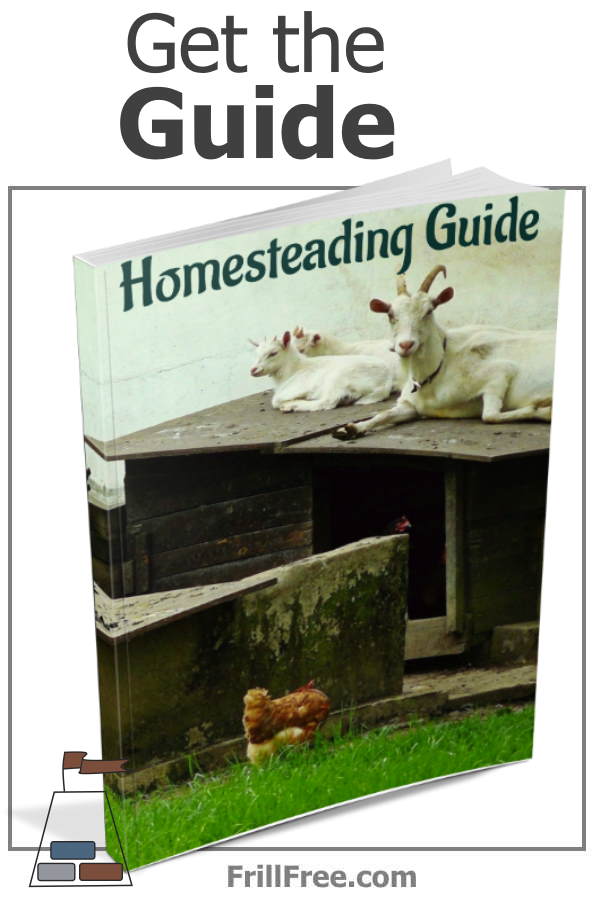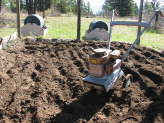- Homesteading
- Homesteading Guide
Homesteading Guide
Your Guide to Get Started Homesteading
In days gone by, homesteading meant you had to leave everything you worked for and everyone you know behind, pack your stuff in a covered wagon, and head off into the unknown.
These days, it's a lot easier. Homesteading your home could mean that you don't even have to move!
Other ways to homestead might mean moving off the electrical grid.
Your dream might be to put up some solar panels, or build a Pelton wheel or a windmill to produce electricity, so you'll need to find the exact right spot where there is already the sun or a stream in place, or a location with steady winds.
If you want to raise animals for food, or to produce fiber, eggs to sell, or for meat, that needs to be discussed.
Certain climates don't lend themselves to producing good fleece on Angora rabbits, for instance, so if that is your vision, keep looking for that ideal place.
However you decide to fund your adventure, there are many ways to make money homesteading.
You may anticipate having children, or you may want a different, freer lifestyle for the ones you already have. This might mean foregoing a particular farm or homestead that is too far out of town to be safe for raising kids. Even homesteaders need medical attention or the library sometimes.
This is a long term investment, and you don't want to be ten years into it, with all the work it entails, to determine that you no longer have the energy and drive to keep going.
In the event that this happens, try to visualize someone else taking over and continuing the dream. All is not lost; your hard work could be someone else's starting point.
The sales potential of an already thriving homestead is huge. Not everyone wants to start from scratch, so having everything in place to appeal to a new owner could be the exact thing you need.
In the unforeseen event of you or a family member getting sick and needing more care, think ahead to all your projects and try to streamline them, and make them easier to hand them off to someone else. This could be temporary, or more permanent.
And now we come to the unpleasant aspect of owning and operating your very own homestead; what to do with unwanted animals.
If they are healthy, and there is no reason not to allow them to live on, you can sell them or gift them to another farm.
One caveat; once you do this, you have to let them go. It's difficult to release the worry and hopes for any animal, but once they are no longer yours, you no longer have any responsibility to them.
Don't fall into the trap of believing that only you can look after them; the danger is that instead of a homestead, you end up in a hoarding situation.
If there are tasks you emotionally can't deal with, outsource it!
This could be something like culling unwanted roosters from the chicken flock (there will always be a 50/50 split between pullets (young hens) and cockerels (roosters) in any clutch of eggs you hatch).
Have a plan on how to deal with an animal being injured or killed in an accident. Can you humanely put such an animal down yourself? Or will you need assistance, and possibly a firearm to do the deed?
Leaving an animal to suffer just because you are too softhearted to pull the trigger is not an option.
What will you do with the carcass? Can you butcher it and salvage the meat yourself so it doesn't go to waste?
How will you deal with the remains?
Leaving a dead animal to pollute the environment or attract predators (or worse; the neighbors dog) is a bad idea. Have a plan on burying it in a designated area where it won't leach into groundwater, or your well.
Other things to outsource could be earthwork, such as berms or swale construction, cleaning chimneys, or any other task.
Use the barter system to trade something you have in excess or some task you don't mind in exchange. This could be raising chicks for someone, growing extra tomato plants, or making quilt batts.
Other ways to trade for what you want could involve looking after a neighbors animals while they go away - caution; this is rife with the possibility of abuse.
Once you are on the hook for being called on for farm sitting, it's easy for scope creep - meaning that you may be okay with chicken sitting for a dozen eggs once a season, but if it morphs into five or six times it could mean a come to Jesus talk with the person.
Keep the lines of communication open so you don't end up with misunderstandings.
Avoid abusing this system yourself too. Staying on the good side of neighbors is important when homesteading. The homesteading tenet of helping neighbors out with barn raising, haying or other seasonal chores makes life a lot easier.
Other considerations that often get overlooked when constructing buildings on your homestead is drainage, both the land itself where you plan to build, and also rainwater and snow sliding off roofs.
Where will it go, and is there room for snow plowing and putting that snow somewhere? Don't plow it up against a fence or a building, which could push it over, or rot it.














